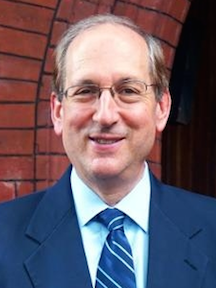Phi Beta Kappa went to Capitol Hill this summer to highlight the importance of the arts and sciences for a meaningful, productive, and engaged life. Launching our newest initiative, Key into Public Service, students and recent graduates heard from established federal public servants, including longtime co-chair of the Congressional Humanities Caucus and ΦBK member Representative David Price. Price observed that a liberal arts education is the source for the “equipment . . . to judge what’s going on around you and to make judgments about the kind of community we wish to be.”
In contrast, I cannot help but be concerned by recent polls suggesting that public perceptions of the value of higher education are shifting, with a stark partisan divide emerging. Survey data released by the Pew Research Center in August revealed that only 50% of those surveyed believe higher education has a positive effect on our country, whereas 38% think the effect is negative. These numbers have worsened since 2010, when 63% thought positively of higher education and only 26% thought negatively. The breakdown by party affiliation is notable: whereas only 33% of Republicans said that higher education had a positive effect, 67% of Democrats responded that it did.
Phi Beta Kappa has an important role to play in affirming the benefits of education, especially liberal arts education, for all of society. I find it helpful to look to another Pew analysis from 2017 that focused specifically on higher education. That survey uncovered a key point: differences between Democrats and Republicans on the value of higher education evaporated when questions focused on personal histories and school loyalties.
Asked how they viewed their own college experience, 89% of Republicans and 87% of Democrats saw the education they received as either “very useful” or “somewhat useful” when it came to workplace skills. Even more telling: 93% of Republicans and 97% of Democrats affirmed that their education was either “very useful” or “somewhat useful” for another essential reason: personal growth.
This consensus resonates deeply with Phi Beta Kappa’s commitment to honor excellence in the liberal arts as preparation for all of life. Personal growth underpins a meaningful life. When that growth happens in the context of a reflective community, experiences of civic commitment provide preparation for an engaged life. And we know that education is essential for a productive life as well, a salient concern in a time of rising student debt. A study conducted by the Federal Reserve Bank of New York in June identifies a clear economic edge for those who earn bachelor’s degrees and concludes that the rate of economic return is high enough to make college a wise decision for most students.
At a time when the search for common ground in our national dialogue seems evermore difficult, Phi Beta Kappa affirms the value of excellence in education. Our new Key into Public Service Scholars program and our September Key Connections events and, more broadly, the lives and careers of more than 500,000 ΦΒΚ members all exemplify the many and varied pathways from a liberal arts education to a meaningful, productive, and engaged life.
Frederick M. Lawrence
Secretary and CEO




